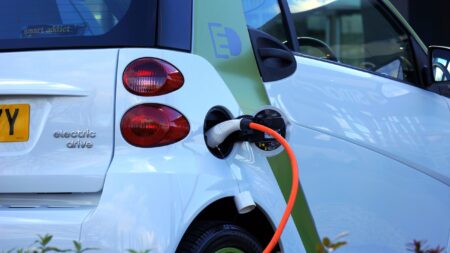Electric cars: The tax breaks
 25th August 2022
25th August 2022
For around the last 20 years or so, the tax treatment of company cars has continually become less attractive. The value of the benefits in kind, taxable on the employee, has increased quicker than inflation, and the capital allowance tax deduction, for the business, has become more and more diluted.
As part of its plans to progress towards Net Zero, the UK Government has pledged to stop the sale of all new petrol and diesel cars from 2030 (with hybrids facing the same fate from 2035). Although it is only possible for a proportion of the cars on the road to be owned within a business, to fiscally encourage this green transition, the company car tax rules over recent years for both employees and businesses have been ‘sweetened’.
For the Employee
Employees pay income tax on the benefit in kind value of the car. For the 2022/23 tax year this value is calculated at 2% of list price for an electric car (defined as having emissions < 50 g/Km and a pure electric range of over 130 miles) whilst the equivalent for a diesel or petrol car may well be based on a multiple within the 20% to 30% range. So for a 40% taxpayer being given use of a £50k company car, this is an approximate annual income tax bill of £400 for electric, compared to £5,000 for petrol/diesel.
On top of this, if users of fossil fuel cars are also provided employer funded fuel for private use, there could well be another annual tax charge of around £2,500. There is no equivalent for electric car users.
Where the company allows employees to charge a company or personally owned car at the workplace, there is no taxable benefit for the provision of that free electricity.
Where the car (either owned by the company or personally) is charged away from the work place (ie at home or on a motorway service station) the employer may reimburse, tax free, the employee for business miles at deemed cost: 5p per business mile for company cars and 45p/25p (up to and over 10,000 miles pa) per business mile for personally owned cars.
For the Business
If your business outright purchases a new electric car you get 100% tax deduction for the vehicle cost in the year of purchase. This compares to 18% for a second hand electric car or low emission (<50g/km) petrol/diesel car and 6% for a high emission petrol/diesel car. Do not forget that when the business sells the vehicle, that this will at least partially be reversed. If the vehicle is acquired through a lease, tax relief matches the total instalments paid during each year.
In the unlikely event that a company car is used only for business purposes, the VAT on purchase price can be fully reclaimed by the business. If the car has mixed use, them 50% of the VAT can be reclaimed on monthly instalments if it is leased.
If the business purchases an electric charging point you can currently (until 31 March 2023) claim the super-deduction (ie 130%) first-year capital allowance. To qualify for the relief the company must use the charging point in their own business.
All other running costs (servicing, repairs, MOT, insurance, cleaning) are tax deductible and can have any associated VAT reclaimed.
Time will tell as to whether these tax incentives are enough to persuade us all, where able, to make the switch over from personal car ownership to business ownership and the switch over from fossil fuels to electric. On top of these tax policies, the UK Government have also made electric vehicles more popular through their policies and pricing on road tax, congestion charges and grants. Our recent experience with business clients is that the above incentives are having the desired effect. However, the recent increase in electricity costs may well reshape this new trend.
Disclaimer - All information in this post was correct at time of writing.








